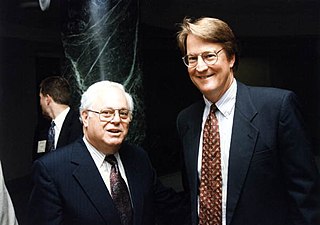A Quote by Scott Turow
That led me to say that when push comes to shove, I'm against capital punishment.
Quote Topics
Related Quotes
It's a tract against capital punishment in the genre of Swift's Modest Proposal. I was simply following a formula to its logical conclusion. Some people appear to have understood it. The publication of Naked Lunch in England practically coincided with their abolition of capital punishment. The book obviously had a certain effect.
We have a legal system, and this is not something that happens all the time. We have capital punishment. America has capital punishment. Iran has capital punishment. Iran hangs people and leaves their bodies hanging on cranes. Iran put to death more than a thousand people last year. I don't see EU reporting on it.
When in Gregg v. Georgia the Supreme Court gave its seal of approval to capital punishment, this endorsement was premised on the promise that capital punishment would be administered with fairness and justice. Instead, the promise has become a cruel and empty mockery. If not remedied, the scandalous state of our present system of capital punishment will cast a pall of shame over our society for years to come. We cannot let it continue.
Given the sin of impiety through which they [the Romans] sinned against the divine nature [by idolatry], the punishment that led them to sin against their own nature followed.... I say, therefore, that since they changed into lies [by idolatry] the truth about God, He brought them to ignominious passions, that is, to sins against nature; not that God led them to evil, but only that he abandoned them to evil.
Embracing a certain quotient of racial bias and discrimination against the poor is an inexorable aspect of supporting capital punishment. This is an immoral condition that makes rejecting the death penalty on moral grounds not only defensible but necessary for those who refuse to accept unequal or unjust administration of punishment.
Muslims who convert to Christianity are not protected. That carries capital punishment. He would be given the opportunity to repent, and the Sharia court would need to determine if he was really a Muslim in the first place, did he know what he was doing, and once all of that has been determined, there is capital punishment for that in Islam.
I have been brought up in a culture where capital punishment is indeed anathema. I have always thought of myself as a principled opponent to capital punishment. However, when thinking about how the topic is handled in other cultures, in particular the American, Russian and Chinese ones, I have realised that my own tack on the issue was utterly superficial.
Those subject to capital punishment are real human beings, with their own backgrounds and narratives. By contrast, those whose lives are or might be saved by virtue of capital punishment are mere 'statistical people.' They are both nameless and faceless, and their deaths are far less likely to be considered in moral deliberations.






































